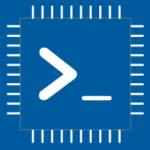Advertisement
Not a member of Pastebin yet?
Sign Up,
it unlocks many cool features!
- /********* Pleasedontcode.com **********
- Pleasedontcode thanks you for automatic code generation! Enjoy your code!
- - Terms and Conditions:
- You have a non-exclusive, revocable, worldwide, royalty-free license
- for personal and commercial use. Attribution is optional; modifications
- are allowed, but you're responsible for code maintenance. We're not
- liable for any loss or damage. For full terms,
- please visit pleasedontcode.com/termsandconditions.
- - Project: Servo Control
- - Source Code NOT compiled for: ESP32 DevKit V1
- - Source Code created on: 2024-07-25 11:10:03
- ********* Pleasedontcode.com **********/
- /****** SYSTEM REQUIREMENTS *****/
- /****** SYSTEM REQUIREMENT 1 *****/
- /* stworz konsole w ktorej bedzie polecenie dzieki */
- /* ktoremu moge sterowac servo */
- /****** END SYSTEM REQUIREMENTS *****/
- /****** DEFINITION OF LIBRARIES *****/
- #include <Deneyap_Servo.h> //https://github.com/deneyapkart/deneyap-servo-arduino-library
- /****** FUNCTION PROTOTYPES *****/
- void setup(void);
- void loop(void);
- void updateOutputs(void);
- /***** DEFINITION OF PWM OUTPUT PINS *****/
- const uint8_t servo_Servomotor_PWMSignal_PIN_D4 = 4;
- const uint8_t servo_Servomotor_PWMSignal_PIN_D13 = 13;
- /***** DEFINITION OF OUTPUT RAW VARIABLES *****/
- /***** used to store raw data *****/
- uint8_t servo_Servomotor_PWMSignal_PIN_D4_rawData = 0;
- uint8_t servo_Servomotor_PWMSignal_PIN_D13_rawData = 0;
- /***** DEFINITION OF OUTPUT PHYSICAL VARIABLES *****/
- /***** used to store data after characteristic curve transformation *****/
- float servo_Servomotor_PWMSignal_PIN_D4_phyData = 0.0;
- float servo_Servomotor_PWMSignal_PIN_D13_phyData = 0.0;
- /****** DEFINITION OF LIBRARIES CLASS INSTANCES*****/
- // Create Servo objects for each PWM signal pin
- Deneyap_Servo servo1; // For pin D4
- Deneyap_Servo servo2; // For pin D13
- void setup(void)
- {
- // Initialize serial communication for console commands
- Serial.begin(9600); // Start serial communication at 9600 baud rate
- // Attach the servo objects to their respective pins
- servo1.attach(servo_Servomotor_PWMSignal_PIN_D4);
- servo2.attach(servo_Servomotor_PWMSignal_PIN_D13);
- pinMode(servo_Servomotor_PWMSignal_PIN_D4, OUTPUT);
- pinMode(servo_Servomotor_PWMSignal_PIN_D13, OUTPUT);
- }
- void loop(void)
- {
- // Check if data is available to read from the Serial Monitor
- if (Serial.available() > 0) {
- // Read the input value from the Serial Monitor
- int angle = Serial.parseInt(); // Parse the integer value
- // Ensure the angle is within the valid range for the servo
- if (angle >= 0 && angle <= 180) {
- // Update raw data for both servos
- servo_Servomotor_PWMSignal_PIN_D4_rawData = angle; // Set angle for servo1
- servo_Servomotor_PWMSignal_PIN_D13_rawData = angle; // Set angle for servo2
- } else {
- Serial.println("Invalid angle! Please enter a value between 0 and 180.");
- }
- }
- updateOutputs(); // Refresh output data
- }
- void updateOutputs()
- {
- // Write the raw data to the servo objects
- servo1.write(servo_Servomotor_PWMSignal_PIN_D4_rawData);
- servo2.write(servo_Servomotor_PWMSignal_PIN_D13_rawData);
- }
- /* END CODE */
Advertisement
Add Comment
Please, Sign In to add comment
Advertisement

